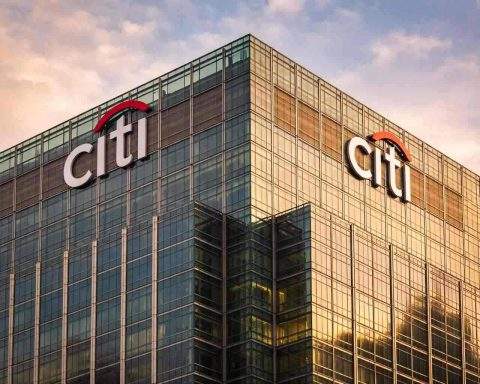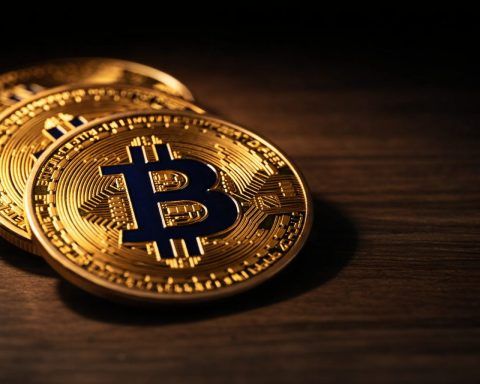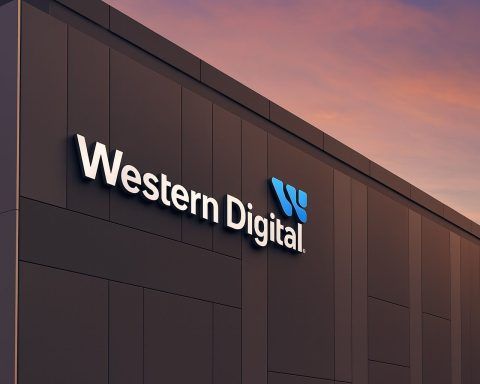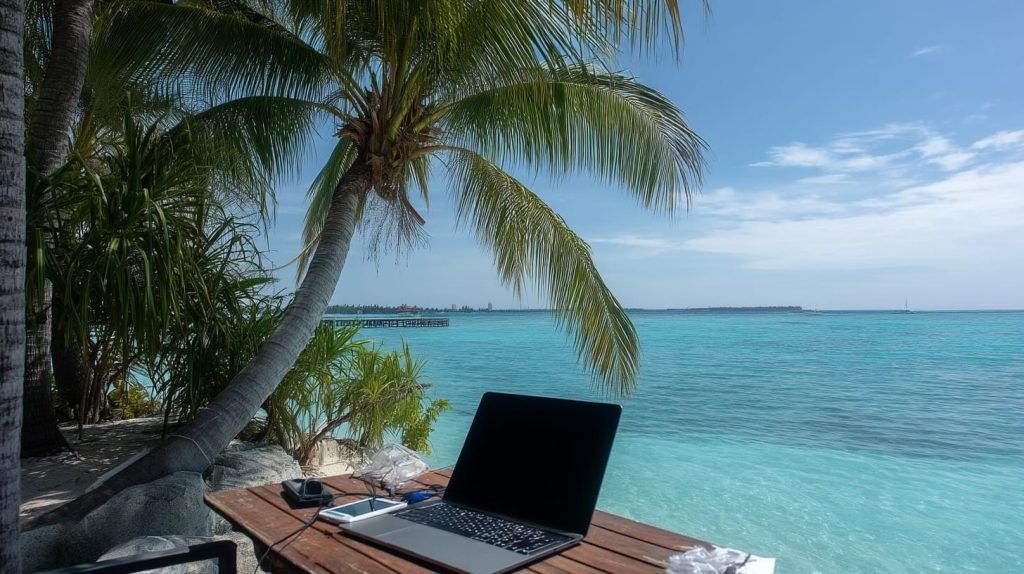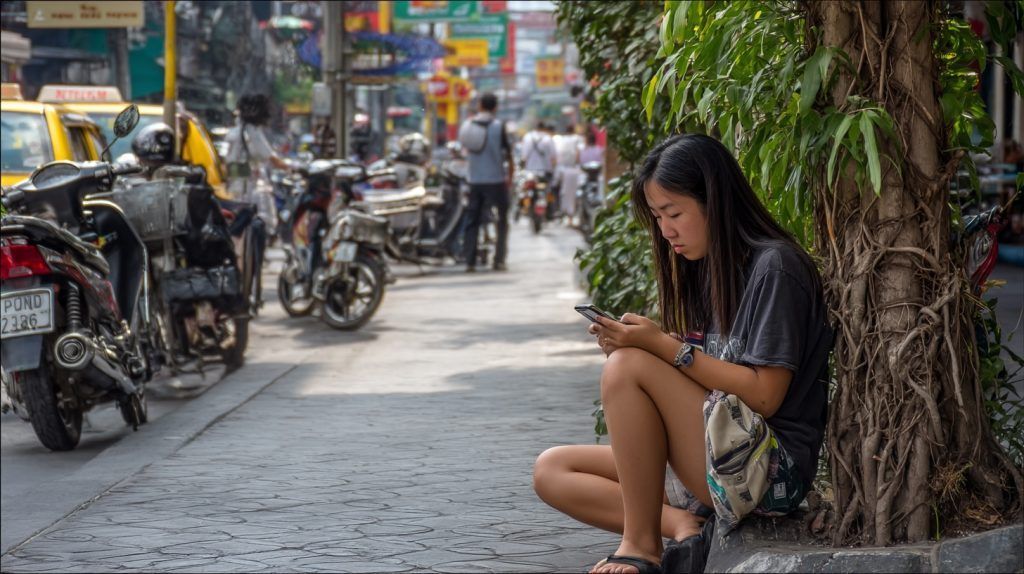- Phuket has widespread fiber-to-the-home (FTTH) with speeds up to 1 Gbps, and some cases 2 Gbps.
- AIS announced by mid-2024 that its 5G network reached 95% of Thailand’s population, including Phuket.
- 5G launched in 2020 and Phuket was among the first areas to receive it, along with Bangkok and Chiang Mai.
- Patong City launched free citywide Wi‑Fi using Cisco and CAT Telecom, via the SmartCityFreeWiFi network managed by Meraki.
- AIS tourist SIMs include an 8-day package for about 399 THB with 25 GB of high-speed data, plus 15- and 30-day options.
- 4G speeds in Phuket typically range 30–100 Mbps, while 5G speeds commonly exceed 100 Mbps, with AIS average 5G download around 136 Mbps.
- Fixed broadband options include AIS Fibre, True Online, 3BB, and NT/TOT, with AIS Fibre offering 100% fiber and plans from 300 Mbps to 1 Gbps.
- Starlink is not yet available to consumers in Thailand as of early 2025; NBTC ran a 2024 Starlink trial with PSU, but licensing and imports remain limited.
- Public Wi‑Fi hotspots are available in Patong, Kata, Karon, Jungceylon, Central Festival, and Phuket International Airport, often free with registration.
- Wyndham Grand Phuket was chosen to deploy Thailand’s first Fiber-To-The-Room (FTTR) network by True Corp and ZTE.
General Internet Infrastructure in Phuket
Phuket is well-equipped with modern internet infrastructure, reflecting its status as a major tourism and business hub. High-speed fiber-optic broadband lines have been extended across urban areas of the island, and gigabit-speed fiber-to-the-home (FTTH) service is widely available in Phuket Town and other populated areas ts2.tech en.wikipedia.org. These fiber networks form the backbone of fixed internet access, ensuring that hotels, cafes, and businesses in tourist zones can provide fast connectivity. Phuket was among the first regions in Thailand to benefit from fiber upgrades; as a result, home and business internet plans up to 1 Gbps (and even 2 Gbps in some cases) are on offer hawook.com hawook.com. In parallel, legacy ADSL and cable systems have largely been replaced or supplemented by fiber in the city. Only in some rural or less-developed pockets (e.g. remote corners of the island or small surrounding islets) might older DSL or wireless links still be in use ts2.tech.
Mobile network infrastructure in Phuket is also highly developed. All three major Thai mobile operators – AIS, True Move H (which merged with Dtac in 2023), and state-run NT (formerly TOT/CAT) – have extensive coverage on the island. Thailand was an early adopter of 5G, and commercial 5G service rolled out in 2020 in major cities en.wikipedia.org. Phuket, alongside Bangkok and Chiang Mai, was among the first to get 5G, and coverage has steadily expanded. By mid-2024, AIS announced its 5G network reached 95% of Thailand’s population, covering all provinces (Phuket included) ts2.tech. In practice, this means Phuket’s populated areas enjoy nearly ubiquitous 4G/5G coverage, with signal available in the places tourists typically visit (beaches, towns, airports, etc.) thailandesim.com thailandesim.com. Even outside the main town, cellular base stations atop hills or buildings ensure that coverage extends across most of the island’s geography.
Public Wi-Fi forms another layer of Phuket’s internet landscape. Local authorities have invested in “smart city” initiatives to improve connectivity for both locals and visitors. Notably, Patong City launched a project in partnership with Cisco and CAT Telecom to deploy free citywide Wi-Fi in high-traffic areas. Users can connect to the SmartCityFreeWiFibyCAT network (via a Meraki-managed system) to get online at no cost meraki.cisco.com. According to the Mayor of Patong, providing reliable public Wi-Fi was seen as a way to enhance the tourist experience and help businesses – this network allows tourists to easily find attractions, restaurants, and services while out and about meraki.cisco.com meraki.cisco.com. Beyond official city Wi-Fi, many private venues offer free internet: virtually all hotels and resorts include Wi-Fi for guests, and cafes, restaurants, and shopping centers commonly provide Wi-Fi hotspots as a courtesy to patrons (usually just ask for the password) phuket-travel-secrets.com novotel-phuket-phokeethra.com. In short, Phuket’s overall infrastructure – fiber backbone, extensive mobile networks, and plentiful Wi-Fi – is well-developed to keep tourists connected.
Availability of High-Speed Internet: Fiber, 4G/5G, and Wi-Fi
High-speed fixed broadband is readily accessible in Phuket’s tourist centers. Most hotels, from budget guesthouses to 5-star resorts, now boast broadband Wi-Fi. In many cases, hotels subscribe to fiber packages (often 100 Mbps up to 500 Mbps or higher) from providers like AIS Fibre or True Online, and complimentary Wi-Fi is provided in rooms and common areas novotel-phuket-phokeethra.com. Higher-end accommodations may even offer “premium” high-speed tiers for those who need extra bandwidth (for example, the Novotel Phuket City offers standard free Wi-Fi to all guests and an upgraded high-speed connection for suite guests) novotel-phuket-phokeethra.com. Outside of lodging, public Wi-Fi hotspots are common in Phuket’s main beach towns. For instance, Patong, Kata, Karon, and other popular areas have numerous bars, coffee shops, and restaurants that advertise free Wi-Fi phuket-travel-secrets.com. Shopping malls (like Jungceylon or Central Festival) and the Phuket International Airport also provide Wi-Fi access – either free with registration or for a nominal fee. While public networks can be useful for casual use or navigation, they may have bandwidth limits or require you to view an ad/login page. Tourists should also exercise usual caution on open networks (avoiding sensitive logins, or using a VPN if needed).
4G and 5G mobile data is arguably the most convenient and widespread high-speed option for tourists. All major Thai carriers have strong 4G LTE coverage essentially island-wide. In cities like Phuket, 4G signal is typically available both outdoors and indoors (coverage is ~100% in urban areas) thailandesim.com. This means that with a local SIM card or eSIM, tourists can get online from almost anywhere – be it lounging on Patong Beach, riding in a taxi, or hiking up to Big Buddha (some very remote or hilly spots might drop to 3G or lose signal briefly, but these are exceptions). 5G coveragein Phuket is focused on the high-demand areas: downtown Phuket City, Patong Beach area, the airport region, and other tourist hubs now have 5G service from AIS and TrueMove H en.wikipedia.org. Coverage maps by operators show 5G along the western beach towns and parts of the eastern coast as well ts2.tech. While 5G is still expanding, users with 5G-capable phones will already find significantly faster speeds in these covered zones (more on speeds in the next section). Importantly, network availability metrics indicate that Thai mobile users have a signal well over 99% of the time on these networks opensignal.com. In practical terms, a tourist’s smartphone will almost always have service in Phuket’s populated and tourist areas – the high 99.3–99.4% network availability reported for AIS and Dtac means near-ubiquitous connectivity in all places one would normally go opensignal.com.
To leverage mobile networks, tourists can purchase local prepaid SIM cards or eSIM plans easily (more details on providers in the next section). Once inserted, these SIMs give access to high-speed 4G/5G data on generous packages (often effectively unlimited for the duration of your stay). The convenience of mobile data means you need not rely on finding Wi-Fi – your phone can be a hotspot for your laptop, and you can navigate with maps or make WhatsApp calls on the go.
Summary of high-speed options: In Phuket’s main areas, travelers have multiple overlapping ways to get online. For stationary use (in hotels or cafes), fiber-fed Wi-Fi is common and often free. On the move, 4G/5G mobile data provides consistent broadband-speed internet almost everywhere a tourist would venture. Public and city-sponsored Wi-Fi fill in some gaps and offer alternatives for those without a local SIM. Taken together, Phuket offers broad coverage of high-speed internet through both fixed and wireless means, making it straightforward for visitors to remain connected for work, communication, and entertainment.
Key Internet Service Providers and Tourist-Friendly Packages
Phuket benefits from Thailand’s competitive telecom market, which means tourists have several choices for internet service. The major players can be divided into mobile network operators (for cellular data) and fixed broadband providers (for Wi-Fi/home connections), though there is overlap as companies often offer both.
Mobile Operators & Tourist SIM Cards: The big three mobile carriers in Thailand are AIS, TrueMove H, and Dtac(note: TrueMove and Dtac have merged under the True Corporation banner as of 2023, but they still market some services under both brands) thailandesim.com ts2.tech. All of them cater to tourists with special prepaid SIM cards and short-term plans that are easy to obtain: typically available at Phuket International Airport’s arrival hall, in 7-Eleven/Family Mart convenience stores, or in official retail shops in town.
- AIS (Advanced Info Service) – Thailand’s largest mobile operator – offers an “Amazing Thailand” tourist SIM and eSIM packages. For example, AIS has a 8-day package for ~399 THB (~$12) that includes 25 GB of high-speed 5G/4G data plus unlimited lower-speed data thereafter, along with free access to AIS Super WiFi hotspots thailandesim.com. They also offer 15-day and 30-day variants (e.g. ~600 THB for 15 days, ~900–1200 THB for 30 days) with larger data caps (35 GB, 50 GB, or even unlimited data) thailandesim.com. These SIMs typically come with some local call credit as well (for ordering food, calling hotels, etc.) and are 5G-enabled, allowing tourists full use of AIS’s fast network. AIS is known for wide coverage and high speeds, which makes it a popular choice for travelers and locals alike thailandesim.com.
- TrueMove H / Dtac – Now part of the merged True Corporation, these two networks combined cover virtually all of Phuket as well. TrueMove has its own tourist SIM offers; for instance, a common package is 10 days of unlimited data for ~349 THB (often marketed at airports) truemoveh-thailandsim.com. True/Dtac also have a 15-day “Tourist Infinite” SIM around 599–699 THB which includes unlimited data (with a high-speed allowance that then throttles) and some voice minutes true.th. One advantage often cited for TrueMove is that many of its packages include freebies like access to True’s nationwide Wi-Fi hotspots and sometimes even promotional perks (discounts at coffee shops or free insurance, according to recent campaigns) truemoveh-thailandsim.com. Dtac’s “Happy Tourist” SIM historically was popular; under True Corp, similar offerings continue – e.g. 8 days with a fixed GB allocation or 15 days unlimited at competitive prices. In terms of network, since the merger, a True SIM will generally allow usage of both the old True and Dtac towers, giving excellent coverage in Phuket.
- NT (National Telecom, the TOT/CAT merger) – NT is the state-run carrier and has a smaller market share. They might not market tourist SIMs as aggressively, but they do offer prepaid SIMs that anyone can buy. NT’s coverage in Phuket is decent in town areas, but their data speeds and network quality tend to lag behind AIS and True in user experience. Tourists usually stick to AIS or True/DTAC unless they have a specific reason.
Where to get SIMs: The simplest route is upon arrival at Phuket Airport, where each provider has a kiosk. Staff will set up your SIM/eSIM, register it (passport needed due to Thai law), and often have you online in minutes. Otherwise, ubiquitous 7‑Elevens sell SIM starter packs (you can ask the cashier to activate it for you). The packages are affordable – as noted, a few hundred baht for one or two weeks of unlimited or high-cap data. This is far cheaper than international roaming fees and will give you local call capabilities too.
Fixed Broadband Providers: If you’re a tourist staying long-term (a month or more) or an expat/digital nomad setting up in Phuket, you might be interested in home broadband installation. The major fixed-line ISPs in Phuket include AIS Fibre, True Online, 3BB, and NT/TOT:
- AIS Fibre: Originally a mobile company, AIS has aggressively expanded into home internet and is now Thailand’s largest fixed broadband provider after acquiring the 3BB network in late 2023 ts2.tech ts2.tech. AIS Fibre offers 100% fiber-optic connections. In Phuket they provide packages ranging from 300 Mbps up to 1 Gbps for home use. Pricing is very competitive – for example, a 500 Mbps fiber plan might cost ~500–600 THB per month (though short-term visitors usually stick to using mobile data or the internet provided at accommodations) ts2.tech. AIS has a strong reputation for reliability and speed, and their customer service supports English, which can be helpful for foreign customers.
- True Online (True Internet): True has long operated broadband (cable and fiber) across Thailand. In Phuket, True’s “Gigatex” fiber plans are available in most populated areas ts2.tech. They offer similar speeds (from 200 Mbps up to 1 Gbps) and often bundle with True’s mobile or TV services. True’s starting packages can be just a few hundred baht per month for basic fiber hawook.com. True also touts a 5G fixed wireless option in some areas – essentially a home router using the 5G network for places without fiber, though in Phuket proper fiber is usually accessible. After merging with Dtac, True’s reach and resources have grown, and they remain a top competitor to AIS for both fixed and mobile internet.
- 3BB: Formerly a standalone ISP known as Triple T Broadband, 3BB is now under AIS’s ownership. However, the 3BB brand and network still operate. 3BB was known for excellent fiber service with some of the fastest plans (they even introduced a 2 Gbps home broadband plan) hawook.com. While new subscriptions might be through AIS now, existing 3BB infrastructure in Phuket means areas that had 3BB service will continue to have fiber coverage.
- TOT/National Telecom: TOT (now part of NT) historically provided ADSL and some fiber, especially in government offices and rural areas. In Phuket, NT (TOT) serves some customers who might be in slightly remote zones or who choose their budget plans. TOT/NT’s speeds might top out lower (e.g. 100 Mbps or older DSL in outskirts), but they have coverage in areas others might miss hawook.com. Tourists generally wouldn’t get a TOT line for a short stay, but you might encounter TOT Wi-Fi or public terminals in some places.
In summary, Phuket’s key providers ensure that as a tourist you have plenty of choices. For short-term visitors, the prepaid mobile SIM route is by far the most convenient internet solution – AIS and TrueMove H tourist SIMs are designed for travelers with generous data and nationwide coverage thailandesim.com. For Wi-Fi, you typically won’t need to sign up with an ISP – your hotel or café will have done that. But it’s useful to know that AIS Fibre and True fiber underpin many of those Wi-Fi networks. The competition between AIS and True (and to a lesser extent others) has driven prices down and quality up, which benefits consumers. Tourists can take advantage of these “tourist bundles” and promotions to get online cheaply and easily.
Common Speeds, Reliability, and User Experience
Tourists in Phuket generally report fast and reliable internet in the main areas. Actual speeds, of course, depend on the method of access (mobile 4G/5G vs. Wi-Fi) and the service plan in use, but Thailand’s internet speeds are impressive by global standards.
Mobile Data Speeds: On 4G networks, typical download speeds in cities range roughly 30–100 Mbps for a single user with a good signal ts2.tech. In Phuket, you can expect your 4G phone to usually get tens of Mbps downlink, which is more than enough for HD video streaming or video calls. With the newer 5G networks, speeds climb even higher – many users see well over 100 Mbps on 5G, and in ideal conditions 5G can deliver several hundred Mbps. In fact, tests have shown AIS’s average 5G download speed around 136 Mbps (which was noted to be higher than its competitors) ts2.tech. That means uploading your vacation photos or joining a Zoom meeting over mobile data is very feasible in Phuket’s 5G zones. Even the average mobile speed nationwide was measured around 87–101 Mbps in late 2024 thailandesim.com ts2.tech, and Phuket is among the places driving that average up. Travelers with newer phones have reported extremely smooth experiences using Google Maps, YouTube, and video conferencing purely on cellular data. Of course, like any mobile network, there can be variability: at peak evening hours or in very crowded events, cell towers can get congested, leading to slower speeds temporarily ts2.tech. Also, if you venture to the very fringe of coverage (e.g. a secluded beach or a boat offshore), your phone might drop to 3G or lose 4G/5G signal, which slows things down. But in all normal tourist locales, the mobile internet is not just widely available but fast.
Wi-Fi and Fixed Broadband Speeds: Where fiber-optic is in use (which is most hotels and businesses in Phuket Town and tourist beaches), Wi-Fi speeds can easily be 100 Mbps and up. Many accommodations advertise free Wi-Fi but not the speed – however, mid-range and higher hotels typically provision enough bandwidth that each guest can stream video or do video calls without issues. It’s common to see 20–50 Mbps on hotel Wi-Fi downloads, and in some cases much more. In one study, Thailand’s median fixed broadband download speed was about 223.5 Mbps (as of Jan 2024), which outpaces mobile speeds ts2.tech. Phuket specifically, being a tech-forward province, has some of the fastest fixed internet in the country. There are reports that average downloads in Phuket have reached ~300 Mbps in 2024, making it one of Southeast Asia’s fastest coastal destinations connectivity-wise mightytravels.com. Practically, this means if you are in a co-working space or a hotel with a direct fiber line, you might experience very rapid downloads/uploads – great for those uploading big work files or having high-quality video chats. One caveat: the Wi-Fi speed you experience also depends on the router quality and how many people share the connection. In a busy café, even a fiber line might feel slow if dozens of devices are on it. Overall though, Phuket’s fixed internet can be described as high-bandwidth and modern, especially in establishments that cater to digital nomads or upscale clientele.
Reliability: The internet in Phuket is generally reliable day-to-day. Unlike some remote islands, Phuket has multiple fiber routes to the mainland and robust infrastructure (thanks in part to telecom investments for tourism). Downtime is rare; you’re unlikely to face prolonged internet outages. Mobile networks have redundancy and backup power, so even during occasional power cuts in some areas, cell towers often keep running on battery – your phone data might still work. That said, tropical heavy rains or storms can sometimes affect line quality or cause brief interruptions, but these are not common or long-lasting issues. Users occasionally report that certain hotel Wi-Fi networks may “throttle” or slow down during peak night hours (if too many guests stream at once), or that in some very rural pockets of Phuket, the home broadband might fall back to older DSL with inconsistent speeds. But in tourist areas, such complaints are infrequent. On the mobile side, as noted, reliability is excellent: an Opensignal report found AIS and Dtac users had a connection 99.4% of the time and TrueMove H 99.3%, indicating nearly seamless connectivity in populated zones opensignal.com. Tourists driving around the island will notice that their Google Maps or Spotify rarely loses connection at any point on the main roads.
User Experience: What does all this mean for a tourist using the internet? In practical terms, every common internet activity is easily supported. Need to do a Zoom or Teams video call for work from your hotel? That’s usually possible either on the hotel’s Wi-Fi or by tethering to 4G/5G – Phuket’s internet speeds can handle HD video calls (just verify your specific hotel’s Wi-Fi quality in advance if you can) novotel-phuket-phokeethra.com. Want to stream Netflix or YouTube in the evenings? Even a 4G phone connection can stream HD video smoothly, and many hotels have smart TVs on fast connections. Using cloud services, social media, and messaging apps is generally instantaneous. For navigation, online maps update quickly, and rideshare apps (Grab, etc.) work without a hitch. Ping times on mobile (latency) are reasonably low, especially on 5G (often 20-30 ms), making even online gaming feasible. One area to note: if you travel to a surrounding smaller island (e.g. Koh Racha, Coral Island, or Phi Phi on a day trip), the connectivity can drop. Some of those islands do have cell coverage, but it might be weaker or only 3G. In those cases, internet may slow down noticeably – so don’t plan a video meeting from a remote islet. But as long as you’re on Phuket Island or nearby mainland-connected areas, the user experience is that Phuket has fast, modern internet on par with or better than many visitors’ home countries. Thailand’s rank as one of the top countries for internet speed (it was 4th globally in fixed broadband median speed in late 2022 at ~205 Mbps) speaks to the infrastructure quality ts2.tech. Tourists and digital nomads consistently find Phuket a comfortable place to stay online, whether for leisure or remote work.
Satellite Internet Access in Phuket and Remote Areas
While mobile and fiber networks cover almost all needs on the island, one might wonder about satellite internet for the truly off-grid scenarios – such as yachts, remote islands, or as a backup. Satellite internet in Thailand (including Phuket) is currently in a nascent and limited state, but there are developments worth noting:
Traditional Satellite Services: Historically, Thailand’s domestic satellite operator (e.g. Thaicom) and others offered VSAT connections for rural areas. In Phuket’s context, a few remote resorts or private islands might use geostationary satellite broadband for their backhaul if laying fiber or microwave links is impractical. These legacy satellite links tend to be slow (a few Mbps) and expensive, so they are not common for consumer use. Tourists generally would not seek out these services – you’d only encounter them if, say, a dive boat in the Similan Islands has a satellite Wi-Fi for emergency use, or a luxury yacht has a satellite antenna on board. Companies like Inmarsat or Iridium can provide basic internet anywhere via satellite phones or terminals, but again, these are very costly per megabyte and used only if no other option exists.
Starlink (LEO Satellite Internet): In many countries, SpaceX’s Starlink constellation has started offering high-speed satellite internet, including to remote areas and boats. However, in Thailand Starlink is not yet officially available to the public as of early 2025. The Thai telecom regulator (NBTC) has been cautious with Starlink’s entry – it approved a limited trial project in 2024 in partnership with Prince of Songkla University (which has a campus in Phuket) to test Starlink for specific use cases bangkokpost.com psu.ac.th. This pilot was focused on emergency communications (e.g. for marine disasters), remote education, and telemedicine in rural regions bangkokpost.com. The trial marks the first time low-Earth orbit satellite internet was tested in Thailand psu.ac.th. While promising, Starlink for consumers awaits further regulatory approvals. In fact, current Thai law restricts importing Starlink kits – there have been cases where Starlink equipment brought in without permission was confiscated by authorities facebook.com therecord.media. Local marine electronics companies that tried to offer Starlink-based services had to stop due to import restrictions: one Phuket-based provider noted “Due to Thailand import restrictions we can no longer offer Starlink hardware or services in Thailand.” asap-marine.com.
What this means for tourists: you cannot legally buy or use a Starlink RV/roam unit in Phuket yet, and you won’t find Starlink at hotels (as of now). That said, the future of satellite internet in Phuket looks bright if regulations ease. The successful NBTC trials could lead to Starlink being authorized for wider use. Should that happen, even the remote outer islands around Phuket (or boats at sea) could have >100 Mbps internet via satellite asap-marine.com, which would be a game-changer for connectivity in national parks, marine areas, and during island-hopping trips.
Current Satellite Options for Tourists: For the time being, if a tourist truly needs internet in a no-signal zone (say, on a sailing trip far from land), the options are limited and pricey. Some yacht charter companies can provide a satellite Wi-Fi unit at extra cost – these might use Inmarsat or other networks, giving basic email and messaging capability. The costs can be on the order of dozens of dollars for a few megabytes of data (very expensive compared to normal internet). As an illustrative example, maritime satellite packages via Starlink (in regions where it’s allowed) cost about 300 USD per month for 50 GB data asap-marine.com – clearly not aimed at casual use. Traditional sat-phone based internet can be even slower and costlier. Therefore, most travelers in Phuket will never need to think about satellite internet. The cellular networks extend offshore for several kilometers, so on popular excursions (Phi Phi islands, Phang Nga Bay), you often still catch a 4G signal part of the way. It’s only in the far-flung Andaman Sea that you’d lose connectivity. In those scenarios (e.g. multi-day liveaboard dive boats), tour operators usually mention that there will be no internet, and you plan accordingly (enjoy a digital detox or use offline maps).
In summary, satellite internet is currently a niche in Phuket – used for special cases like disaster preparedness, research, or by high-end vessels – and not a mainstream option for tourists. However, upcoming LEO satellite services like Starlink have begun testing and could become available in the near future, which would greatly benefit connectivity in Phuket’s surrounding islands and remote corners bangkokpost.com. Travelers with an eye on the future can watch for Starlink’s official launch in Thailand; it could mean that by your next trip, even a quiet island beach could have broadband via satellite. Until then, Phuket’s robust ground networks have you covered in almost all situations.
Pricing Comparison of Internet Access Options in Phuket
One of the pleasant surprises for many tourists is that internet access in Thailand is quite affordable, especially compared to Western countries. Here we compare the typical costs and features of various ways to get online in Phuket:
| Access Type | Typical Providers/Options | Typical Speeds | Approx. Cost | Notes for Tourists |
|---|---|---|---|---|
| Mobile Data (4G/5G) | AIS, TrueMove H (Dtac) tourist SIMs Local eSIM plans | 4G: ~30–100 Mbps 5G: 100 Mbps+ in coverage areas ts2.tech | ฿300–฿700 for 1–2 week packages thailandesim.com (~$9–$20 USD) | Highly recommended.Widely available; 15–50 GB or unlimited data. Covers you almost everywhere with personal hotspot capability. |
| Hotel/Accommodation Wi-Fi | Hotels, resorts, hostels (using AIS/True/3BB service) | 20–100 Mbps (basic) 100 Mbps+ (fiber to property) | Usually included free in room rate novotel-phuket-phokeethra.com (some budget stays may charge ฿100–฿200/day) | Common and convenient. Quality varies by hotel – high-end places often have very fast internet, whereas a small guesthouse might be slower or shared. Always ask or check reviews. |
| Public Wi-Fi & Cafés | Phuket Smart City Free Wi-Fi (Patong) meraki.cisco.com Cafés, restaurants, malls (with Wi-Fi for customers) | 5–50 Mbps typically (variable) | Free, usually. Possibly need to buy a drink at a cafe or watch an ad. | Readily found in tourist areas. Great for quick checks. For any sensitive browsing, consider using a VPN on public hotspots. City free Wi-Fi requires a one-time login but has no fee meraki.cisco.com. |
| Internet Cafés | Local shops in towns (e.g. Patong, Phuket Town) | 5–20 Mbps (varies with shop’s line) | ฿30–฿60 per 30 minutes (~฿60–฿120/hour) phuket.net | Useful if you don’t have a device or need printing. Many have card readers, scanners, etc. Rates near beaches are higher (up to ฿150/hour) phuket.net. Most tourists now carry devices, so these are less common than before. |
| Home Fiber Broadband | AIS Fibre, True Online, 3BB (for long stays or rentals) | 100–1000 Mbps (fiber plans) | ~฿500–฿1200 per month (~$15–$35) ts2.tech | Not practical for short visits due to installation time and contracts. But digital nomads renting for a few months might consider it. Some condo/Airbnb rentals include a high-speed fiber line in the unit. |
| Satellite Internet | (Future: Starlink; present: limited VSAT) | Starlink ~100 Mbps asap-marine.com Legacy VSAT ~5–20 Mbps | Very expensive. E.g. $300 (฿10,000) for 50 GB on Starlink asap-marine.com. Older services even higher cost per MB. | Not generally available to consumers in 2025. Only used in remote scenarios (research, yachts). Not needed in Phuket mainland thanks to good mobile coverage. |
As shown above, for most tourists the cost of getting excellent connectivity is quite low. For roughly ฿450 (under $15), you can have a week or more of virtually unlimited mobile data thailandesim.com – which can serve as your primary internet for all devices. Hotels and cafés fill in the rest, usually at no additional charge. In global comparisons, Thailand’s pricing per megabit is among the cheapest; for instance, entry-level fiber plans of 300–500 Mbps cost around ฿500/month (whereas in some countries you’d pay many times that) ts2.tech. Mobile data prices have similarly dropped in recent years – unlimited 4G/5G plans for ฿300–฿500/month are common for locals ts2.tech, which explains why tourist packages can offer lots of data so cheaply. Overall, internet access will likely be a minor expense in your Phuket travel budget, yet it delivers major convenience.
Tip: If you are a very short-term visitor (say 3-5 days) and don’t want to buy a local SIM, note that roaming with your home carrier could be extremely expensive for data. In that case, relying on free Wi-Fi at hotels and hotspots might be sufficient to avoid charges – or consider renting a pocket Wi-Fi device at the airport. But given the low cost of Thai SIMs, most travelers opt to get one and enjoy hassle-free connectivity everywhere.
Tips for Tourists Needing Reliable Internet
Whether you’re a digital nomad doing remote work, or simply a traveler who needs maps and social media at hand, here are some practical tips to ensure reliable internet in Phuket:
- Get a Local SIM/ESIM Early: The single best thing for connectivity is to purchase a tourist SIM card (or eSIM) when you arrive. This will give you immediate access to 4G/5G data on your phone. As mentioned, AIS and TrueMove offer convenient tourist packages with lots of data thailandesim.com. Having mobile data means you’re not dependent on finding Wi-Fi and you have coverage virtually everywhere. It’s especially useful for navigation (Google Maps), ride-hailing apps, translating, and emergency contact. If your phone is eSIM-capable, you can even buy and activate an eSIM online before you land to save time.
- Leverage Wi-Fi Where Available: While mobile data is great, you should still take advantage of Wi-Fi at your hotel or cafes for heavier tasks. For example, if you need to download large work files or back up your photos, do it on the hotel’s fiber Wi-Fi instead of using up mobile data. Many hotels have decent speeds – if you’re doing work, choose accommodations known for good internet (user reviews on booking sites often mention Wi-Fi speed or stability). In coffee shops or co-working spaces, feel free to ask staff which network to join and if there’s any time limit. Some free Wi-Fi may require a login via SMS code – another reason a local SIM helps, so you can receive the code.
- Consider Co-Working Spaces: Phuket has a growing number of co-working spaces and business hubs geared toward remote workers and entrepreneurs. Places like Hatch in Phuket Town, HUBA in Cherngtalay, or cafes with dedicated work areas (e.g. “Grind Time” in Rawai) provide comfortable environments with very reliable high-speed internet. For mission-critical video conferences or uploads, a co-working space can offer more stability (and backup power, quiet rooms, etc.). They typically charge either a daily drop-in fee (maybe ฿200-฿500) or just expect you to buy food/coffee if it’s a café hybrid. These spots are designed for consistent connectivity and often have fiber lines and multiple routers – great insurance if you absolutely must have an uninterrupted Zoom meeting.
- Use Dual Connectivity for Important Tasks: If you have an important online task (say a live webinar you’re hosting), consider using both Wi-Fi and mobile data as backup. For instance, join on your laptop via the venue Wi-Fi, but keep your phone’s hotspot ready. If the Wi-Fi hiccups, you can quickly tether your laptop to the phone’s 4G/5G. This redundancy ensures you’re covered even if one network has a momentary issue. Thankfully, such issues are rare in Phuket, but this is a good practice for any travel in unfamiliar networks.
- Download Offline Maps & Info: Phuket is well-covered by mobile internet, but if you plan to venture on long drives (e.g. the less-touristy northeast coast or into Phang Nga province) or boat trips, it’s smart to download offline maps on Google Maps or Maps.me for the area. That way, even if you hit a patch with no signal, you won’t be left stranded without navigation. Similarly, download any important info (boarding passes, hotel addresses, translation packs) in advance. This tip is more about peace of mind – in reality, you’ll likely have coverage, but offline backups cost nothing and guard against dead zones.
- Stay Secure: Public Wi-Fi in Phuket is generally safe to use, but it’s still a public network. Use HTTPS (which most sites are) and avoid any sensitive financial transactions on open networks. If you have a VPN service, it’s wise to enable it when using unsecured Wi-Fi at airports or malls. Mobile data is encrypted and personal, so it’s inherently more secure for things like online banking. Basically, apply the same internet security common sense you would at home.
- Be Aware of Peak Times: Occasionally, internet speeds can slow down if many people are using the same resource. For example, if your hotel is fully booked and everyone streams Netflix at 9pm, the shared bandwidth might feel slower. If you need to do a critical high-bandwidth task, try scheduling it at an off-peak time (early morning or mid-day) to get the best performance. Similarly, major events or holidays (New Year’s Eve on Patong Beach, for example) might load the mobile networks heavily – sending that New Year photo at midnight might be a bit delayed due to thousands of concurrent users. In normal daily use, though, these slowdowns are minor.
- Ask Locals or Staff: If you’re unsure about the internet in a particular place, ask! Locals are familiar with which mobile network works best in their neighborhood (occasionally one provider might have a slightly better signal at a specific beach). Hotel staff can often tell you if they’ve had any outages or if they have a secondary network. If you absolutely require a certain speed (for instance, to upload a work project), you could even politely ask the hotel to do a speed test for you before booking – many will oblige or at least confirm that they have fiber internet.
Using these tips, most travelers find that staying connected in Phuket is easy and stress-free. The island is a modern destination that understands the needs of both leisure tourists and remote workers. By preparing a bit (getting a SIM, knowing your Wi-Fi spots) and using the resources available, you’ll be able to navigate, work, and play online without interruption.
Recent and Upcoming Improvements to Internet Access
Phuket’s internet landscape is not static – continuous upgrades are underway to make connectivity even better. Here are some of the recent developments and future improvements on the horizon:
- 5G Network Expansion: Since the initial 2020 launch, 5G coverage has grown rapidly. By 2024, operators like AIS and True claim over 95% population coverage nationwide ts2.tech. In Phuket, this translated to 5G signals reaching all districts of the island, not just the city center. Expect even more 5G small cells to fill in capacity at crowded tourist spots (stadiums, large resorts) and improve indoor coverage. The telecom companies are in a race to boast the best 5G experience – in 2024 AIS was recognized for the best coverage and speed in Thailand, and True/DTAC were close behind thailandesim.com. This competition ensures better speeds and lower latency for users year over year. Looking forward, Thai operators are testing 5G Standalone networks and new frequency bands to increase speeds further, which could roll out in Phuket soon as part of their tech showcase areas.
- Fiber Optic Rollout and Upgrades: On the fixed broadband side, Phuket is part of Thailand’s push to extend fiber everywhere. The government’s National Fiber Backbone project (launched 2024) and private investments mean more redundant fiber routes to Phuket (important for resilience) and connecting smaller communities with fiber. Within the island, new property developments are being built with fiber-to-the-premises as a standard utility. A noteworthy recent project: True Corp and ZTE chose a Phuket residential complex (Wyndham Grand Phuket) to deploy Thailand’s first Fiber-To-The-Room (FTTR) network, essentially providing optical fiber connectivity to every room in the development for ultra-fast Wi-Fi zte.com.cn. This kind of cutting-edge deployment in Phuket indicates the island is often a testbed for new telecom tech, given its high-end market and demand for quality. Tourists in the future may see hotels boasting full fiber infrastructure that guarantees top-notch internet in every corner of the property.
- Public Wi-Fi and Smart City Expansion: Phuket’s quest to be a “Smart City” continues. The Free Wi-Fi in Patong (and parts of Phuket City) is just the start. There have been proposals to expand free internet access island-wide. In 2023, political leaders even campaigned on providing free Wi-Fi “in various locations across the island” as a public service thai.news. While such island-wide coverage isn’t fully in place yet, we can expect more hotspots to come online in tourist heavy zones, bus terminals, parks, and beaches through government or private sponsorship. Phuket officials are also integrating connectivity into smart city solutions – for example, to support real-time transport info, CCTV, and IoT sensors, which all require robust networks meraki.cisco.com meraki.cisco.com. Tourists will benefit indirectly: more digital services (like smart transit apps, city guides) and directly: more places to hop onto Wi-Fi when needed. Keep an eye out for “Phuket Smart City” Wi-Fi signs or similar – these signal free connectivity zones provided by the local government.
- Satellite Internet Trials and Launch: As discussed, Starlink’s trial in Thailand (with Phuket’s university involvement) concluded in late 2024 psu.ac.th. If deemed successful by regulators, we might see a move to license Starlink or similar LEO satellite services for commercial use. Should that happen in 2025 or 2026, Phuket’s remote fringes (and nearby islands) could see a big connectivity boost. It would mean that even if you travel to a currently disconnected spot, a portable satellite kit could provide broadband. Some luxury resorts or tour operators would likely adopt this to advertise “always-on” internet. Moreover, the Thai government is supporting satellite tech via state entities (e.g. Thaicom’s Globalstar gateway launched in 2023 to facilitate LEO satellite services for IoT and tourism among other uses) bangkokpost.com. In short, Phuket could soon benefit from the space race in internet – a backup in case of terrestrial network issues and a way to connect the unconnectable. Tourists might not notice a direct change yet, but these developments ensure Phuket remains future-proof in communications.
- Infrastructure Investments for Tourism: The post-COVID strategy for Phuket includes diversifying and improving infrastructure for high-end tourism and business travel nationthailand.com nationthailand.com. While much of that is focused on transport (new roads, airport expansion, even discussions of light rail), digital infrastructure is part of the plan. The aim to make Phuket a global destination includes being a “digital hub”and supporting events (MICE – meetings, incentives, conferences) nationthailand.com. This means improving internet capacity at convention centers, ensuring 100% fiber coverage at all major hotels, and perhaps offering special services like city-wide 5G for events. There’s also talk of encouraging tech startups and digital industries in Phuket, which would bring even better connectivity (for example, a tech park with gigabit internet that could trickle down benefits to consumers). Already, Phuket has seen a Phuket Digital Nomad Association emerge and collaboration with universities on tech and innovation for remote work mightytravels.com mightytravels.com. For the average tourist, these initiatives might manifest as things like apps for tourists, better mobile information services, and confidence that Phuket can handle large-scale connected events (think digital festivals or e-sports tournaments).
In conclusion, the trend is clear: internet access in Phuket is getting faster, more pervasive, and more innovative each year. What is already a strong point for tourism (connectivity) is being further enhanced by 5G build-outs, fiber upgrades, expanded free Wi-Fi, and possibly satellite integration. For tourists, this means you can expect an even smoother online experience on future visits – whether you’re telecommuting from a beach, navigating with real-time data, or uploading 4K videos of your trip. Phuket is not just keeping up with the digital age; in many aspects, it’s aiming to lead. ts2.tech mightytravels.com
Sources:
- Wikipedia – Internet in Thailand (accessed for national context on broadband and 5G availability) en.wikipedia.org en.wikipedia.org.
- Thailand eSIM – Mobile Internet in Thailand: Advice for Tourists 2024 (coverage and speed statistics for Thai mobile networks) thailandesim.com thailandesim.com.
- TS2 Technology – Thailand’s High-Speed Internet Revolution (Marcin Frąckiewicz, 2024) – analysis of Thai internet infrastructure, providers, speeds, and prices ts2.tech ts2.tech ts2.tech.
- Hawook.com – Best Home WiFi Service Providers in Phuket in 2025 (overview of Phuket ISPs like AIS, True, 3BB, TOT and their offerings) hawook.com hawook.com.
- Cisco Meraki Case Study – Phuket SmartCity WiFi (detailing Patong’s free Wi-Fi project with Cisco/CAT) meraki.cisco.com meraki.cisco.com.
- Thai.news – Phuket Transforms into ASEAN’s Ultimate Smart City – Free Internet… (Apr 2023 news on plans for free island-wide internet as part of smart city initiative) thai.news.
- Bangkok Post – NBTC approves Starlink internet project (Jan 2024) – news on Thailand’s first Starlink trial with PSU, objectives of satellite internet test bangkokpost.com bangkokpost.com.
- PSU News – First in Thailand: STARLINK satellite internet tested by PSU (May 2024) – confirmation of Starlink trial launch event and NBTC authorization psu.ac.th psu.ac.th.
- ASAP Marine (Phuket) – Starlink Marine Internet (product page) – note on import restrictions for Starlink in Thailand, and example satellite internet pricing asap-marine.com asap-marine.com.
- MightyTravels.com – 7 Coastal Destinations with Fast Internet for Digital Nomads in 2024 – mention of Phuket’s average download speeds ~300 Mbps in 2024 mightytravels.com.
- Phuket.Net – Internet Access & WiFi Hotspots (local info on internet cafés and Wi-Fi, though somewhat dated) phuket.net.
- Novotel Phuket City – Free Internet (hotel website blurb confirming free Wi-Fi and premium access for guests) novotel-phuket-phokeethra.com.
- True Corp – Tourist SIM and eSIM for Traveller in Thailand (True website, details of tourist packages and promotions) truemoveh-thailandsim.com truemoveh-thailandsim.com.
- Thailand eSIM – AIS SIM Cards and eSIM – Guide for Tourists 2025 (specifics of AIS tourist SIM pricing and data allowances) thailandesim.com thailandesim.com.
- Opensignal – Thailand Mobile Network Experience, Nov 2023 (metrics on availability and speeds for Thai operators) opensignal.com.




